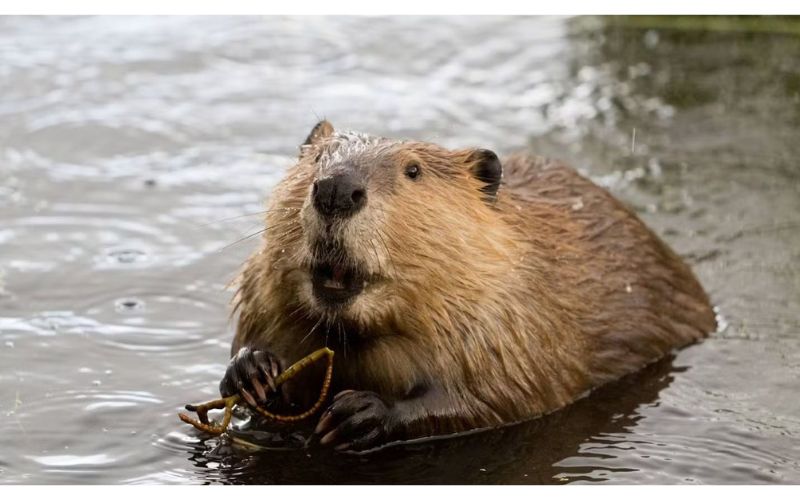Minn. Officials Declare Eating Nuisance Beaver Is Now Illegal
MINNESOTA – Minnesota opened its beaver trapping season on Saturday, five months after state lawmakers made it illegal — under certain circumstances — for people to eat the furry rodents.
Jokes, complaints and unanswered questions rose from the Senate floor when the proposed law came up for discussion in May. But even now, as trappers set out to bag the animals, it’s unclear why a beaver provision got added to Minnesota statutes that says: “Human consumption of a retained beaver is prohibited.’’
It’s a gnawing question that lawmakers were not eager to discuss.
Maj. Scott Staples of the DNR enforcement division, said he wasn’t involved with the legislative process and has yet to receive a solid answer for the law’s purpose. But he dismissed hearsay that suggested it won’t be enforced. ”If we came across this, we’ll take appropriate enforcement action,’’ Staples said.
He explained that the ban applies to people removing nuisance beavers from their land. The enterprising critters can be killed any time of year for hindering drainage, chomping trees or causing other damage.
“This is specific to landowner nuisance complaints,’’ Staples said. “If you catch a wild beaver with a license … there’s nothing that prohibits you from eating those.’’
A trapper himself, Staples said he doesn’t know many trappers who eat beaver meat, but he does know a few. The toothy herbivores are abundant in Minnesota and are sought for their fur and oil-producing glands. On occasion, their meat goes to feed sled dogs. Cooked beaver nuggets can also be found on the smorgasbords of some wild game feeds.
“I can tell you that even though I personally don’t go out and trap beavers to eat them, I have eaten them and it is pretty good,’’ Sen. Steve Green, R-Fosston, said during the Senate floor debate on May 17. “I do know a lot of people who consume beaver and I think it’s a little problematic that we are making it a crime.’’
Green asked Sen. Foung Hawj, DFL-St. Paul, why the prohibition was deemed necessary. Hawj and Rep. Rick Hansen, DFL-South St. Paul, co-chaired the House-Senate conference committee that inserted the language into the 2024 omnibus environment and natural resources bill.
Hawj said there hasn’t been enough research about beaver consumption to tell if it’s safe. He said legal compliance with the new law will depend on the “honor system.’’
Green’s retort? “I’m still not sure why it’s in there.’’
Amy Barrett, of the Minnesota Health Department, said key officials at the agency told her that lawmakers did not contact the agency about the proposed consumption ban. If they had, health officials would not have recommended such a prohibition, she said.
Beavers carry a bacterium that can cause tularemia in humans. But Barrett said colleagues in the agency’s foodborne illness and zoonotic disease units said the real risk of contracting the disease would be from handling the carcass and getting bacteria into a wound or mucous membrane. Foodborne transmission is possible, she said, but less likely compared to other routes, and the meat would have to be raw or undercooked.








